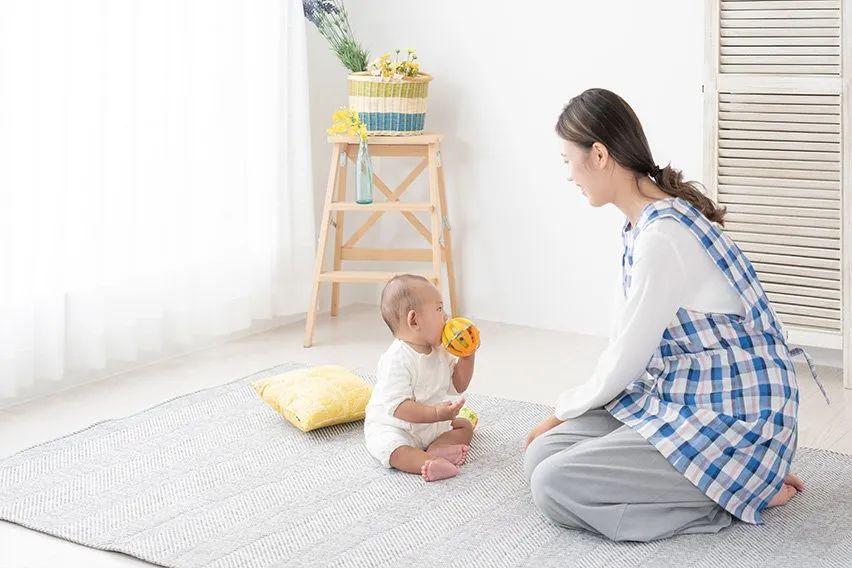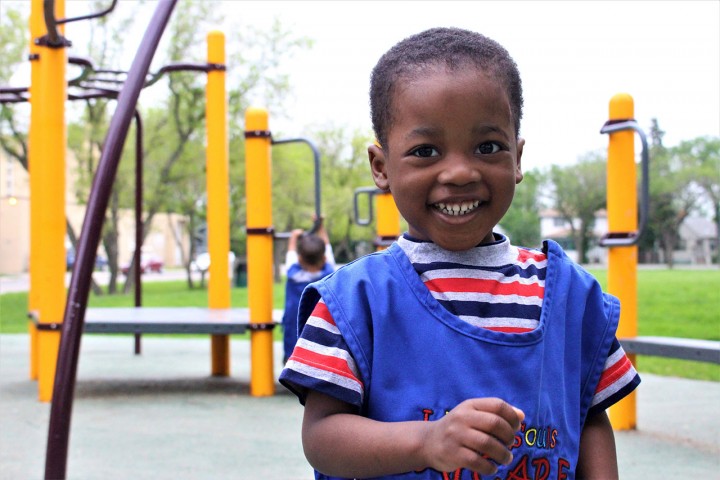Check Out Highly Recommended Daycare Near Me for Infants: Top Companies Near You
Check Out Highly Recommended Daycare Near Me for Infants: Top Companies Near You
Blog Article
The Role of Day Care in Cultivating Your Toddler's Cognitive and emotional Abilities With Organized Play and
The function of daycare in nurturing a kid's cognitive and emotional growth is usually underestimated, yet it offers as a pivotal setting for organized play and instructional tasks. Via carefully developed experiences and interactions, caretakers facilitate essential skills such as emotional recognition and analytic.
Importance of Structured Play
Structured play is a vital part of young child growth, as it offers a structure whereby children can engage in significant interactions and finding out experiences. This type of play is intentionally developed to foster various developing skills, such as cognitive, social, and physical abilities. By taking part in organized tasks, kids discover to follow policies, take turns, and coordinate with peers, all of which are vital for their social abilities.

In addition, structured play typically integrates instructional aspects, such as counting, color acknowledgment, and language development, flawlessly incorporating finding out right into enjoyable activities. This approach not only records young children' interest but likewise strengthens essential principles in a pleasurable manner. Generally, structured play is instrumental in advertising a well balanced advancement, equipping young children with the fundamental abilities needed for future understanding and social interactions.
Emotional Development in Daycare
Daycare atmospheres play an essential function in fostering psychological development in young children. These settings provide kids with opportunities to communicate with caretakers and peers, facilitating the growth of crucial social-emotional skills. Via routine communications, young children find out to recognize and share their feelings, such as unhappiness, disappointment, or joy, which is important for their psychological maturity.

In addition, the structured atmosphere of daycare permits kids to experience a variety of emotions in a safe space. When transitioning from home to daycare and create strength as they navigate new partnerships and experiences, they discover to manage feelings of separation stress and anxiety. Generally, the emotional development fostered in childcare not only advantages kids during their developmental years but also prepares for healthy and balanced interpersonal connections and psychological well-being throughout their lives.
Cognitive Abilities Via Activities
Through participating in a variety of tasks, kids in childcare settings can dramatically improve their cognitive abilities. Structured play and educational tasks are essential in advertising cognitive growth, as they offer chances for exploration, analytic, and critical thinking. Tasks such as challenges, foundation, and memory video games challenge young children to assume artistically find this and logically, fostering crucial skills like spatial awareness and pattern acknowledgment.
Additionally, interactive storytime sessions urge language growth and comprehension. By paying attention to stories, kids learn to process details and engage their creativities, which boosts their narrative abilities and vocabulary. In addition, hands-on activities including arts and crafts boost fine motor abilities while additionally urging self-expression and imagination.
Sensory play, such as sand or water tasks, permits toddlers to trying out various structures and materials, promoting inquiry-based learning. These experiences not just boost cognitive abilities however additionally instill a feeling of interest concerning the world around them - toddler daycare near me. On the whole, the diverse variety of cognitive tasks provided in daycare settings plays a reference critical duty fit a toddler's capability to assume seriously, address issues, and engage meaningfully with their surroundings
Social Connections and Communication
In a nurturing atmosphere, kids naturally build social links and take part in communications that are essential for their social and emotional advancement. Day care settings offer an unique opportunity for children to engage with peers, fostering important social skills such as sharing, teamwork, and conflict resolution. These interactions help kids discover to browse their emotions and understand the perspectives of others, which are critical parts of emotional intelligence.
Via structured play and group activities, toddlers are motivated to connect their sensations and ideas, improving their spoken skills and promoting empathy. Involving with peers also presents them to diverse social norms and behaviors, improving their understanding of social dynamics. Consistent communication with various other children assists to develop a feeling of neighborhood, supplying an assistance system that is helpful for psychological development.
As toddlers participate in collective jobs, they find out the value of settlement, team effort, and patience. These fundamental social skills are critical as they plan for future connections, both in instructional settings and past. Inevitably, the social connections created in daycare play a substantial duty fit a kid's ability to connect positively and efficiently with others throughout their lives.
Duty of Caregivers in Growth

Caregivers play a crucial duty in promoting kid advancement, particularly in the context of the social interactions they experience in childcare settings. These professionals give a caring setting where kids can explore their feelings and cognitive abilities through structured play and educational activities. By engaging in significant conversations, caretakers support language development and enhance social skills.
Moreover, caretakers model emotional responses and suitable habits, helping young children discover empathy and problem resolution. Their existence also produces a feeling of safety and security, which is crucial for youngsters to confidently discover their environments and engage with peers.
Along with psychological and social assistance, caregivers contribute in executing instructional curricula that promote cognitive growth - daycare for infants near me. They introduce age-appropriate activities that promote inquisitiveness, essential thinking, and analytic abilities. This organized strategy makes certain that toddlers not only appreciate their playtime yet likewise acquire foundational understanding important for future learning
Eventually, the quality of caretaker interactions dramatically influences a young child's overall development. By promoting a supportive and engaging atmosphere, caretakers assist lay the foundation for healthy and balanced psychological and cognitive development, gearing up kids with necessary skills for their long-lasting trip.
Verdict
Finally, daycare acts as a crucial setting for promoting cognitive and psychological growth in toddlers. Through structured play and academic tasks, kids experience significant growth in their capacity to acknowledge and share feelings, establish critical thinking skills, and kind essential social connections. The duty of caregivers is critical in facilitating these experiences, guaranteeing that each kid advantages from a nurturing atmosphere that advertises lifelong emotional well-being and cognitive improvement.
The function of day care in supporting a toddler's emotional and cognitive development is typically underestimated, yet it additional hints offers as a pivotal environment for organized play and academic activities. In general, structured play is critical in promoting a well balanced growth, equipping kids with the fundamental abilities needed for future discovering and social communications.
Childcare settings play an important duty in promoting emotional development in young children. In general, the emotional development fostered in childcare not just benefits kids during their formative years but also lays the groundwork for healthy interpersonal relationships and psychological well-being throughout their lives.
Through structured play and team activities, young children are motivated to connect their feelings and ideas, enhancing their verbal skills and promoting compassion.
Report this page